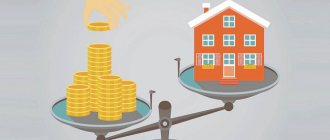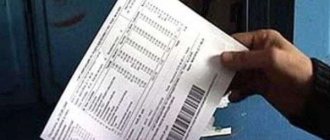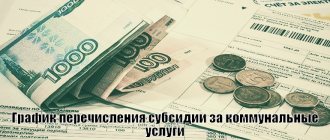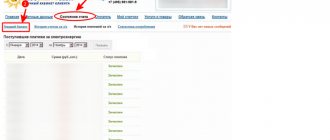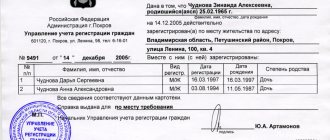What is the federal waste collection scheme?
The federal scheme is being created as part of the so-called garbage reform, following which the regions have chosen a scheme for waste removal and payment for it.
A new municipal solid waste (MSW) management system began to operate in the Russian Federation on January 1, 2020. It involves the introduction of separate waste collection and the selection of a regional operator responsible for the collection and disposal of MSW in the subject. In each region, operators who are involved in the removal, processing, sorting or disposal of waste are selected on a competitive basis.
What's the new punishment for littering? More details
The unified state system collects information about all infrastructure facilities related to the disposal, disposal and processing of waste. The first draft of the federal scheme was presented in March; it now includes more than 4 thousand objects, of which 850 are those that have yet to be built or reconstructed.
The final version of the federal waste management scheme is planned to be adopted by the end of 2020. By this time, all regional data, locations and capacities of infrastructure facilities will be collected, which will make it possible to create a fair tariff and, in general, create a transparent waste management system. Currently, the waste management scheme does not contain information about the source of data on the volume of waste generation, as well as information about the possibility of expanding the capacity of disposal and processing facilities.
In accordance with the federal scheme, more than 850 infrastructure facilities will have to be built and reconstructed by 2024. According to forecasts, in 2024, 42 million tons of waste should be processed, and 25 million tons of waste should be disposed of.
The owner can be exempt from paying for garbage removal, even if no one is registered in his home
As can be seen from the previous example, the regional operator will voluntarily recalculate the fee for the removal of solid waste for the period of temporary absence of residents only if in the region the fee is calculated based on the number of residents (and not based on the square footage of housing).
But here, too, not everything is so smooth. According to clause 148 (36) of the already mentioned Rules No. 354, if no one is registered in a residential premises (either permanently or temporarily), then the fee for garbage removal is calculated according to the number of its owners.
A resident of the Altai Territory had to face this rule when an apartment she owned was charged with arrears of payment for garbage removal for a whole year.
This is despite the fact that the apartment was empty (the owner confirmed that she had been living at a different address all this time). The re-operator referred to the same paragraph 148 (36) of Rules No. 354 and refused to recalculate.
Source:
Legal subtleties
Heading:
Housing legislation
garbage removal utilities housing and communal services
- Irina Sivakova, lawyer
How will tariffs for waste removal be set?
Fees for waste management are not included in housing and communal services. It refers to housing services, the cost of which can rise above inflation. Tariffs for garbage collection for the population now depend on the region. By the end of 2020, the average payment for MSW removal services decreased from 92.5 rubles per person per month to 88.95 rubles. In approximately 40 regions of the country the tariff is below this average.
How to recalculate garbage? More details
In Moscow, since the beginning of 2020, the cost of services for the removal of MSW and bulky waste from the population has increased from 2.34 rubles. up to 5.23 rub. per 1 sq. m of total area - 2.24 times.
According to the new waste management scheme, people should pay not according to standards, but for the actual accumulated waste. The new methodology for calculating the tariff is based on two indicators: the number of containers and how often they are exported. If there are five containers per apartment building, and they are removed once a day, then, accordingly, 150 containers are removed per month, based on this parameter and the payment per person is formed. The tariff will be set upon export.
At the federal level, they want to supplement the scheme with calculations to reduce fees. As explained by specialists from the Russian Ecological Operator (PPK REO), the creation of a federal waste collection scheme will help to see the real picture on the market and evenly calculate waste accumulation rates. Such a scheme will also help to establish from which facilities where waste should be transported for processing and disposal. “When the scheme is adopted, we will be able to accurately calculate the export tariff,” explained Alexey Mayorov, Chairman of the Committee on Agricultural and Food Policy and Environmental Management of the Federation Council .
Cleaning stairwells, cleaning garbage chutes and removing garbage
First of all, it should be noted that cleaning in the entrances of houses is regulated by the Rules and Standards for the Technical Operation of the Housing Stock, approved by Resolution of the State Construction Committee of the Russian Federation dated September 27, 2003 No. 170.
IMPORTANT: Based on these Rules, cleaning stairwells and cleaning garbage chutes (in high-rise buildings) is included in the maintenance of housing, so these services should not be allocated a separate line on the invoice, and, accordingly, they should not be paid in excess payment for maintenance of housing.
Simply put, if the garbage chute is clogged and it was cleaned by the management company or the HOA, then charging these amounts in addition to the maintenance of the housing is unlawful.
According to the above Rules, cleaning in the entrances of apartment buildings must be carried out daily. It includes the following activities with established frequency:
- daily wet sweeping of stairs and landings on the first two floors (or higher), which are usually the dirtiest, and once a week wet sweeping of flights of stairs and landings on all floors that are equipped with an elevator and garbage chute should be carried out,
- wet cleaning of the elevator car, with wiping of walls, doors, ceilings and lampshades, should be carried out 2 times a month,
- wet cleaning of areas in front of the waste chute valves (if any) is carried out on all floors without exception,
- Once a week, the areas in front of the entrance should be cleaned, the metal grates and the dirt container underneath should be cleaned,
- Once a year, windows are washed, walls, lampshades, doors, electric meter cabinets, mailboxes, ceilings, window grilles, attic stairs are wiped with a damp cloth.
- At intervals of 2 times a year, wet wiping of radiators and window sills should be carried out.
In addition, different cities may have different rules regarding cleaning of entryways.
For example, in Moscow, the frequency of basic work on cleaning staircases (appendix to form No. ZHM-96-01/7) is established by Moscow Government Decree No. 465 dated 06/04/1996 (as amended on 02/02/2010). It should also be noted that the relevant agreement may provide for the frequency of work more often than specified in the Rules and Standards for the Technical Operation of the Housing Stock of 2003.
The time and frequency of garbage collection (more correctly, collection and disposal (removal) of solid waste), if apartment buildings are not equipped with a garbage chute, should be posted in places where this information will be available to everyone - usually a notice board at the entrance. According to the legislation of the Russian Federation, this service is not included in the maintenance of housing and is paid separately.
In January 2020, the city prosecutor's office clarified the legislation on the removal of liquid household waste (hereinafter referred to as LWW). It was stated that the provision of this service is not regulated by housing legislation.However, in March 2020, more than 6 thousand residents of unsewered residential buildings in the city were sent receipts for payment of housing and communal services for February 2020, which included the service of IP Kadulina A.V. for the removal of reinforced waste in the amount of 688 rubles 57 kopecks.
An audit carried out by the prosecutor's office following a complaint from one of the residents established that written contracts for the provision of such services were not concluded with residents, in fact, the service had not yet been provided to citizens before issuing a receipt, and in order to remove reinforced concrete goods, consumers must independently apply with the appropriate application to an individual entrepreneur.
The issued receipts included both a utility service provided by the municipal unitary enterprise "Raivodokanal" (cold water supply), which citizens are required to pay due to the requirements of housing legislation, and a service provided by an individual entrepreneur (removal of liquid household waste), which is not related to the utility service.
In one receipt, the amounts of two services, different in quality and content, are combined into a total amount indicating the deadline for its payment (until the 10th of the next month), tariffs and standards on the basis of which they are formed. However, for the removal of reinforced waste, tariffs and standards are not established by current legislation; the actual requirement of a payment document to pay a fee for the removal of reinforced waste is illegal.
The information specified in the payment document is presented in such a way that the consumer is obliged to pay together with, which was misleading to the owners of residential buildings. At the same time, payment for such services means acceptance of the terms of the contract, which will allow monthly payments to citizens in the future.
In order to eliminate the identified violations and exclude the line “removal of reinforced waste materials” from the issued receipts, the individual entrepreneur and the director of the municipal unitary enterprise “Raivodokanal” were presented with recommendations to eliminate violations of the law.
In addition, in relation to IP Kadulina A.V. a case was initiated regarding an administrative offense under Part 2 of Article 14.1 of the Code of Administrative Offenses of the Russian Federation (carrying out business activities for transporting waste of hazard class 4 without a license), which was sent for consideration to the Arbitration Court of the Nizhny Novgorod Region.
Response measures are under consideration.
Also, due to the presence of signs of violation of antimonopoly legislation (unfair competition through misrepresentation), through the regional prosecutor's office in relation to individual entrepreneur A.V. Kadulina. The audit material was sent to the Office of the Federal Antimonopoly Service for the Nizhny Novgorod Region.
E.Yu. Khrunova, deputy Kulebak city prosecutor.
Google Ads
The Criminal Code has changed the procedure for charging for reinforced concrete services, should I pay or not pay?
Good afternoon, dear lawyers!
Multi-apartment residential building - septic tank for two houses. No one lives in the apartment, no repairs have been made, no plumbing fixtures have been installed. The cold water meter is not sealed (the house was commissioned in 2014, the quality of the water was unsatisfactory according to the results of the examinations, the developer was obliged to fix it, and we were told that when the water was of normal quality the meters would be sealed until they were, the payment was taken according to the meter readings without any problems) But in July 2020, the management company changed, in the period from July 2016 to September 2020, the management company charged for the service of removal of concrete waste according to the meter readings provided, I repeatedly went to them for reconciliations, we confused the actual numbers with their data and recalculated for me.
The last recalculation was made in April 2020. This was required because, according to them, “the computer cannot take into account the zero readings” that I submitted, since no one lives in the premises. In October 2020, I went to them again, asked to do a recalculation, everything was as usual, they said they would take it into account next month, but a month later I received a receipt with an increasing debt, in November I went to them again, they told me to do a reconciliation, and that it was paid ( 350 rubles, and they can also seal the meter just in case (another 350 rubles), on November 22, their specialist came and did a reconciliation, in December the debt increases, they don’t recalculate - I already swore, and they told me that they won’t do any recalculation for you – pay what is written.
In October 2020, I went to them again, asked to do a recalculation, everything was as usual, they said they would take it into account next month, but a month later I received a receipt with an increasing debt, in November I went to them again, they told me to do a reconciliation, and that it was paid ( 350 rubles, and they can also seal the meter just in case (another 350 rubles), on November 22, their specialist came and did a reconciliation, in December the debt increases, they don’t recalculate - I already swore, and they told me that they won’t do any recalculation for you - pay what is written. In January and February 2020, receipts for the removal of reinforced concrete goods began to include some wrong numbers.
On February 26, 2020, I sent a letter via email to the director of the management company with a request to understand the situation, to which on March 1 I received a response (in writing) that I should submit an application for recalculation (although in my email to them, actually this was the statement).
Okay, I went and wrote a statement. On March 16, 2018, I received a response with a refusal.
A little later, a receipt arrived two weeks late for March and on the back of it there was information that charges for reinforced concrete products are made based on the area of the apartment (I am attaching the back of the receipt).
It was then that it became clear what kind of mess this was, I heard about such a law for the first time, having studied it, I see that yes, they have the right... But I have a question - for three years they took payments from us for the removal of reinforced waste by meters, we were aware, that they were not sealed, they made recalculations based on them, and then they changed the order without even notifying us in advance (I remind you that I was personally in their office in December). Another question is whether it is possible to somehow oblige the management company to make calculations according to the formula: Total reinforced concrete goods removed minus meter readings and let the rest be distributed by square meters, in my opinion this is quite logical, but for some reason only for me... Today - I don’t living in a building, I have to pay 2,000 rubles a month for the removal of reinforced waste (I have a two-room apartment of 54 sq.m.), when people living five people in a hotel (with an area of 15 sq.m.) pay 500 rubles.
Sincerely, Ludmila
Collection and removal of liquid household waste is not a public sewerage service.
In this regard, fees for the collection and removal of liquid household waste cannot be calculated, as for public utilities, on the basis of consumption standards, or on the basis of metering devices. WHAT IS “WATER DISPOSAL”? The concept of sewerage service (utility service) is established in clause 4 of the Rules for the provision of utility services to owners and users of premises in apartment buildings and residential buildings, approved by Decree of the Government of the Russian Federation of May 6, 2011 No. 354 and is defined as the removal of household wastewater through centralized sewerage networks.
We recommend reading: Customs clearance of a car from Kaliningrad to Russia calculator
That is, if your wastewater flows into a centralized sewer with access to a wastewater treatment plant, then you are using a public sewerage service. All types of utilities are listed in Art. 154 of the Housing Code of the Russian Federation - this is cold water supply, hot water supply, water disposal, electricity supply, gas supply, heating.
This list is exhaustive and is not subject to expanded interpretation.
WHO SET THE TARIFF AND HOW IS IT CALCULATED? The procedure for calculating fees for utility services is established by Art. 157 of the Housing Code of the Russian Federation and is carried out based on the actual volume of consumed services, determined on the basis of meter readings.
If there are no metering devices, then the cost of the service is calculated based on consumption standards per person. The tariff for utility services is established by the authorized executive body of the Sverdlovsk region in the field of state regulation of prices (tariffs, rates, markups, markups, indices, rates, fees), which is the Regional Energy Commission of the Sverdlovsk Region. The same body sets standards for the consumption of utility services.
WHAT IS “REMOVING RECORDS”? The concept of “liquid household waste” is enshrined in the rules for the provision of services for the removal of solid and liquid household waste, approved by the Decree of the Government of the Russian Federation of February 10, 1997.
No. 155 (as amended on February 1, 2005) and according to the All-Russian Classifier of Services to the Population OK 002-093, approved by Decree of the State Standard of the Russian Federation dated June 28, 1993 No. 163, the collection and removal of liquid household waste is included in the group of housing services. In accordance with clause 11 of the Rules for the maintenance of common property in an apartment building and the rules for changing the amount of payment for the maintenance and repair of residential premises in the case of the provision of services and performance of work on the management, maintenance and repair of common property in an apartment building of inadequate quality and (or) intermittently exceeding the established duration, approved by the Decree of the Government of the Russian Federation of August 13, 2006.
In accordance with clause 11 of the Rules for the maintenance of common property in an apartment building and the rules for changing the amount of payment for the maintenance and repair of residential premises in the case of the provision of services and performance of work on the management, maintenance and repair of common property in an apartment building of inadequate quality and (or) intermittently exceeding the established duration, approved by Decree of the Government of the Russian Federation of August 13, 2006 No. 491, the service for the collection and removal of solid and liquid household waste is included in the work (services) for the maintenance of the common property of an apartment building.
WHY IS THE REMOVATION OF RECORDS CHARGED BASED ON THE AREA OF THE APARTMENT? Article 158 of the Housing Code of the Russian Federation establishes that owners of premises in an apartment building are required to participate in the costs of maintaining the common property of an apartment building in proportion to their share in the common ownership of this property. In turn, the share of each owner in the common property of an apartment building is proportional to the size of the premises owned (Art.
37 of the Housing Code of the Russian Federation). In other words, the larger the area of the apartment, the greater the owner’s share in the common property, and accordingly, the greater the owner’s expenses for maintaining this common property. Therefore, the cost of housing services is calculated per square meter of owned premises.
At the same time, based on the explanations of the Ministry of Regional Development (letters dated October 3, 2008 No. 25080-SK/14 and dated March 6, 2009
No. 6177-AD/14) activities for the collection and removal of solid and liquid household waste are potentially competitive and, in accordance with federal legislation, its cost is not regulated. Thus, the amount of payment for the collection and removal of liquid household waste should be determined based on the volume of liquid household waste actually removed.
The owners of premises who have installed individual cold water supply meters and those who do not have meters find themselves in an equally disadvantaged position.
In accordance with the Federal Law of November 23, 2009
No. 261-FZ
“On energy saving and increasing energy efficiency in the Russian Federation”
Metering devices are installed to account for energy resources, which include water transmitted and consumed using centralized water supply networks.
Therefore, accounting for water discharge into cesspools cannot be carried out according to meter readings. And accounting for the collection and removal of liquid household waste from a cesspool can be taken into account based on the number of cubic meters of waste actually removed from the pit.
The calculation of the collection and removal service for a specific owner of a premises in an apartment building is as follows: the cost of the removed volume of reinforced waste for a certain period, divided by the area of all apartments and non-residential premises (excluding common areas) and multiplied by the area of a specific apartment (premises).
Needless to say, the cost of sewerage services is significantly cheaper than the collection and removal of liquid household waste. In the current conditions of the absence of local treatment facilities and the increase in water consumption due to the use of modern household appliances, an increase in the volume of waste removal is inevitable.
The district leadership has repeatedly considered the issue of repairing and increasing the capacity of existing treatment facilities.
Currently, the municipality can only afford to work on preparing a project for the reconstruction of the wastewater treatment plant in the village of Beloyarskoye. In the future, the issue of the possibility of regional and federal co-financing of work through appropriate programs for the modernization of housing and communal services facilities will be explored. Daria TITOVA, housing control specialist of the BGO Administration.
Daria TITOVA, housing control specialist of the BGO Administration.
Payment for housing and communal services for heat
Calculation of payments for heating has a fundamental difference from other areas of housing and communal services. The fact is that the basis for calculations is not the amount of heat consumed, but the total cubic capacity of the apartment. However, recently, special devices have begun to be introduced into everyday use that allow you to control the level of heat in the house as part of central heating. Meters allow you to significantly save money during the heating season. An example of calculating the amount of payment for heating is as follows.
At the end of the month, the heat meter recorded 3 gigacalories. According to the current regional tariff, 1 gigacalorie costs 1,200 rubles. The calculation will look like this:
3*1200 rubles=3 600 rubles
The lack of an metering device forces the use of generally accepted rules for calculating heating payments, according to which a certain amount of heat is required for each square meter of the apartment. Let's look at an example.
Regional authorities have established a tariff according to which 0.03 gigacalories per square meter of living space. According to the tariff, 1 gigacalorie costs 1,200 rubles. The total area of the premises is 120 square meters. The calculation looks like this:
120*0.03*1,200=4,320 rubles
It is worth considering that for houses in which communal metering devices are installed, this calculation method is not used.
